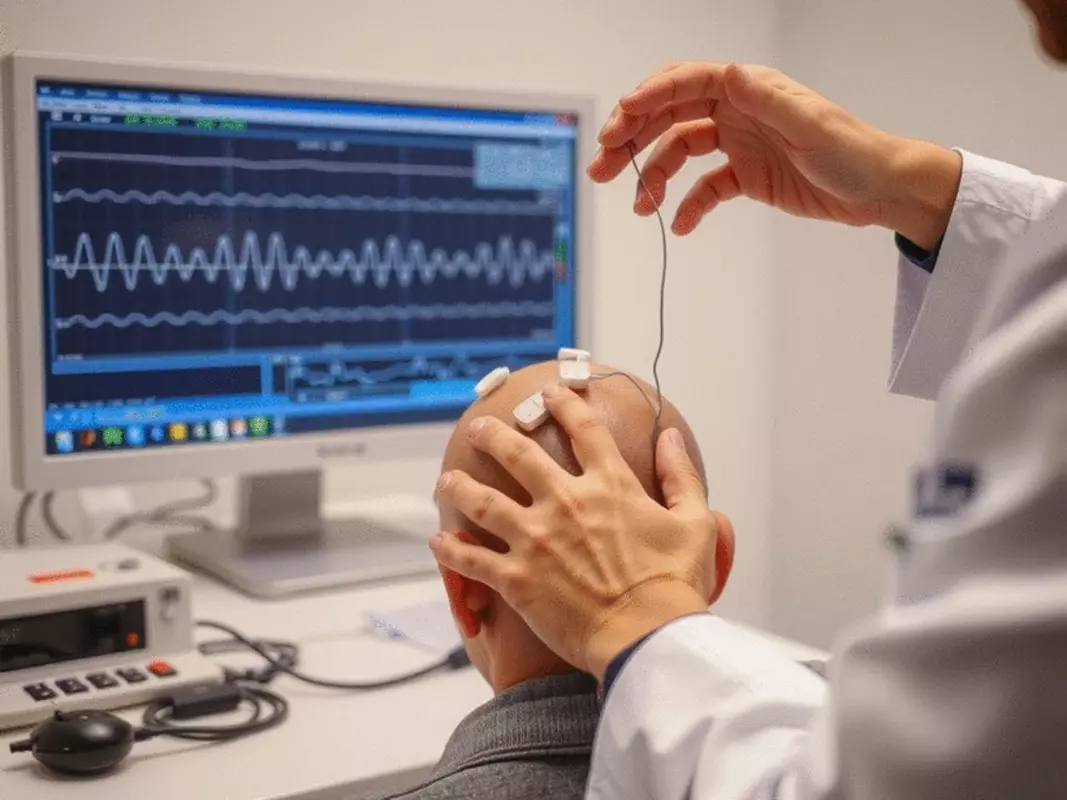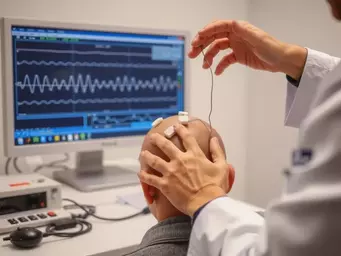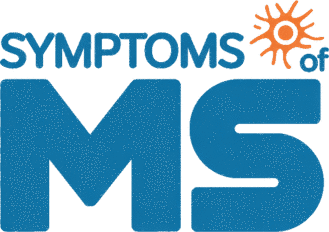Recognizing Early MS Warning Signs

Early detection is key when it comes to managing multiple sclerosis. Understanding the various aspects of this complex condition can empower individuals and their families to navigate their health journey more effectively. What insights can you gain from exploring the essentials of MS?
What You Will Learn
- Multiple sclerosis (MS) is a chronic condition impacting the central nervous system, leading to diverse symptoms like fatigue and vision problems.
- Early detection of MS significantly improves management options and health outcomes through timely medical intervention.
- Risk factors for developing MS include genetic predisposition and environmental influences, such as geographic location and vitamin D levels.
- Engaging with support networks and utilizing symptom trackers can enhance your management journey and provide emotional support.
- Lifestyle changes, including balanced nutrition and regular exercise, play a crucial role in managing the symptoms of MS.
Key Early Symptoms and Management Strategies for Multiple Sclerosis
Understanding and managing Multiple Sclerosis involves recognizing early signs and adopting proactive strategies. The visual below highlights symptoms and actionable steps for effective care.
Early MS Symptoms
- •Fatigue: Overwhelming exhaustion.
- •Numbness/Tingling: In limbs.
- •Vision Problems: Blurred vision.
- •Muscle Weakness: Balance issues.
Risk Factors
- •Family History: Genetic predisposition.
- •Geographic Location: Further from equator.
- •Vitamin D Levels: Lower exposure.
- •Viral Exposure: Certain viruses.
Actionable Steps
- •Symptom Tracker: Document patterns.
- •Professional Guidance: Consult neurologist.
- •Support Networks: Connect with others.
- •Lifestyle Changes: Diet & exercise.
Understanding Multiple Sclerosis: An Overview of Its Impact
Multiple sclerosis (MS) is a complex neurological condition that can significantly affect the lives of those diagnosed. It occurs when the body's immune system mistakenly attacks the protective covering of nerve fibers, leading to communication problems between the brain and the rest of the body. This disruption can manifest in various ways, often creating a ripple effect that touches many aspects of a person's life. Understanding MS is essential, not just for those diagnosed but also for their families and caregivers.
At Symptoms of MS, my mission is to provide you with clear, neurologist-reviewed information to empower you during this journey. Knowledge is a powerful tool in managing your health and fostering resilience in the face of challenges. For a comprehensive overview of MS symptoms, you can refer to the National MS Society's detailed guide.

What is Multiple Sclerosis?
Multiple sclerosis is a chronic condition that primarily affects the central nervous system. The symptoms can vary widely from person to person, making it crucial to recognize what MS entails. Common symptoms include fatigue, visual disturbances, and difficulty with coordination. The unpredictable nature of these symptoms can often feel overwhelming. The Mayo Clinic provides extensive information on the causes and symptoms of MS.
- Fatigue: Not just tiredness; a pervasive sense of exhaustion.
- Numbness or tingling: Often experienced in the limbs.
- Muscle weakness: Leading to difficulties in movement.
- Vision problems: Including blurred vision and optic neuritis.
Understanding these symptoms can help you identify potential issues and seek guidance early. Recognizing MS is the first step toward effective management and improving your quality of life.
The Importance of Early Detection in MS
Early detection of MS can lead to timely intervention, which is essential for managing the condition effectively. The sooner symptoms are recognized, the quicker treatment options can be explored. This proactive approach can help mitigate long-term complications and improve health outcomes. According to Rush University Medical Center, recognizing early signs of MS is crucial for initiating effective treatment.
- Regular monitoring: Keeping track of symptoms over time can reveal patterns.
- Seeking medical advice: Don’t hesitate to consult a healthcare provider if you notice concerning symptoms.
- Utilizing available resources: Educational platforms like Symptoms of MS can provide invaluable support.
By taking charge of your health with early detection, you empower yourself to navigate your care journey with confidence.
Risk Factors for Multiple Sclerosis: What You Should Know
Understanding the risk factors associated with multiple sclerosis can help you assess your own situation. While the exact cause of MS remains unknown, certain factors have been identified that may increase the likelihood of developing the condition. These include genetic predisposition and environmental influences.
Family History and Its Role in MS
Family history plays a significant role in the risk of developing MS. If someone in your family has been diagnosed with the condition, your risk may be higher compared to individuals without any family history of MS. It’s important to share your family history with your healthcare provider, as this can guide evaluations and discussions about your health.
Environmental Factors Affecting MS Development
Various environmental factors may contribute to the development of MS, including geographic location, vitamin D levels, and exposure to certain viruses. For instance, individuals living in regions further from the equator have a higher incidence of MS, which may be linked to lower sunlight exposure and subsequent vitamin D deficiency. Understanding these factors can assist in making informed lifestyle choices.
Staying educated about MS and its risk factors can provide a sense of ownership over your health journey. As we move forward, remember that you're not alone, and there are resources available to support you every step of the way!
Pro Tip
When managing multiple sclerosis, consider utilizing a symptom tracker app. These tools allow you to log symptoms in real-time, helping you identify patterns and potential triggers. By sharing this data with your healthcare provider, you can facilitate more effective discussions about your treatment options and overall management strategy.
Summarizing Key Early Signs of Multiple Sclerosis
Understanding the early signs of multiple sclerosis is vital for effective management and treatment. Each symptom, while sometimes subtle, can play a critical role in your overall health journey. I often emphasize the importance of recognizing these indicators early, as timely intervention can significantly affect the trajectory of the disease.
Here’s a quick recap of some key early symptoms of MS to keep in mind:
- Fatigue: This isn’t just feeling tired; it can be an overwhelming exhaustion that disrupts daily life.
- Numbness or tingling: These sensations can occur in various parts of the body, often catching individuals off guard.
- Vision problems: Issues like blurred vision or optic neuritis can signal underlying MS.
- Muscle weakness: This can affect your balance, making simple tasks more challenging.
It’s crucial to stay vigilant for these symptoms and to document any changes you experience. Doing so can empower you and your healthcare provider to make informed decisions about your care.

Encouragement to Seek Professional Guidance
If you recognize any of these early signs, I encourage you to seek professional guidance promptly. Early consultation with a neurologist can facilitate a proper diagnosis and allow for early intervention strategies. Remember, your health matters, and acting swiftly can lead to a more manageable future.
Joining a network of supportive individuals can also enhance your journey. Many people find comfort in sharing their experiences and receiving advice from others who understand the challenges of living with MS.
Taking Action: Your Next Steps in Health Awareness
Using a Symptom Tracker for Monitoring Health
Keeping a symptom tracker can be a game-changer in your health management journey. By documenting when and how symptoms occur, you can identify patterns that may help your healthcare provider in diagnosis and treatment. Consider tracking:
- The type of symptoms experienced
- Frequency and duration of symptoms
- Any potential triggers or patterns
This proactive approach alone helps you but also provides valuable information to your healthcare team when you seek help.
Connecting with Support Networks for MS Patients
Engaging with support networks can significantly enhance your experience. At Symptoms of MS, we believe that connecting with others facing similar challenges can foster a sense of belonging and understanding. Here are a few options:
- Joining local or online MS support groups
- Participating in MS awareness events
- Utilizing resources from organizations dedicated to MS
These connections can provide emotional support and practical advice, making your journey feel less isolating.
Exploring Treatment Options: Disease Modifying Therapies and Corticosteroids
When it comes to managing multiple sclerosis, exploring treatment options is essential. Disease Modifying Therapies (DMTs) can help slow the progression of MS and reduce relapses, while corticosteroids can alleviate flare-ups. It’s important to discuss these options with your neurologist to identify the best plan tailored to your needs.
Staying informed and proactive about your treatment options can empower you to take control of your health journey.
Considering Lifestyle Changes for MS Management: Nutrition and Exercise
Finally, lifestyle changes can play a significant role in managing MS. Incorporating a balanced diet and regular exercise into your routine can enhance your overall well-being. Here are some suggestions:
- Nutrition: Focus on whole foods, incorporating plenty of fruits, vegetables, lean proteins, and healthy fats.
- Exercise: Engage in activities that you enjoy, whether it’s walking, swimming, or yoga. Regular movement can boost your energy and mood!
Remember, every little change can contribute positively to your health and quality of life. As always, I’m here to provide insights and guidance as you navigate the complexities of multiple sclerosis. Together, we can create a plan that works for you!
Frequently Asked Questions About Multiple Sclerosis
- What are the key early symptoms of Multiple Sclerosis?
- Early signs often include overwhelming fatigue, numbness or tingling in the limbs, blurred vision or optic neuritis, and muscle weakness which can lead to balance issues.
- Why is early detection of MS important?
- Early detection allows for timely medical intervention and treatment, which can significantly improve management options, mitigate long-term complications, and lead to better health outcomes.
- What are the main risk factors for developing MS?
- Risk factors include a genetic predisposition (family history of MS) and environmental factors such as geographic location (further from the equator), lower vitamin D levels, and exposure to certain viruses.
- How can a symptom tracker help in managing MS?
- A symptom tracker helps individuals document the type, frequency, duration, and potential triggers of their symptoms. This data provides valuable information for healthcare providers to make informed decisions about diagnosis and treatment strategies.
- What role do lifestyle changes play in MS management?
- Lifestyle changes, including a balanced diet rich in whole foods (fruits, vegetables, lean proteins, healthy fats) and regular exercise (like walking, swimming, or yoga), can significantly enhance overall well-being and help manage MS symptoms.
Recap of Key Points
Here is a quick recap of the important points discussed in the article:
- Recognizing Symptoms: Common early signs of MS include fatigue, numbness or tingling, vision problems, and muscle weakness.
- Importance of Early Detection: Early recognition of symptoms can lead to timely intervention, improving health outcomes.
- Understanding Risk Factors: Family history and environmental factors play a significant role in the likelihood of developing MS.
- Monitoring Symptoms: Keeping a symptom tracker can help identify patterns and triggers, aiding in effective management.
- Seeking Professional Guidance: Consulting a healthcare provider promptly upon recognizing symptoms is crucial for proper diagnosis and care.
- Engaging with Support Networks: Connecting with others facing similar challenges can provide emotional and practical support.
- Exploring Treatment Options: Discussing Disease Modifying Therapies (DMTs) and lifestyle changes with your healthcare team can empower you in your health journey.









